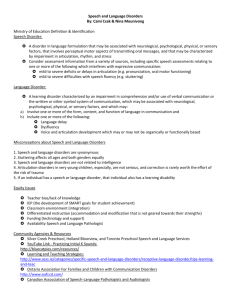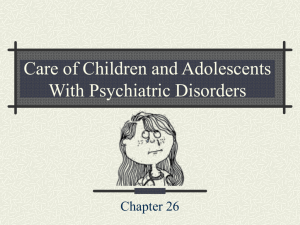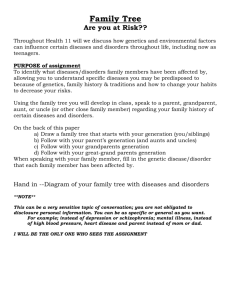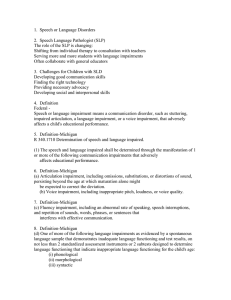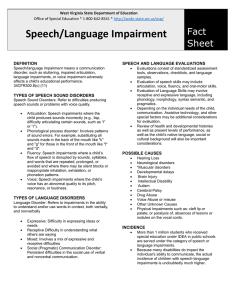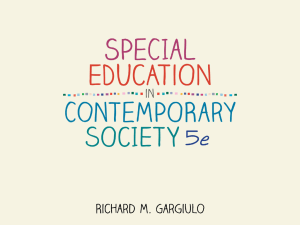Communication Disorders
advertisement
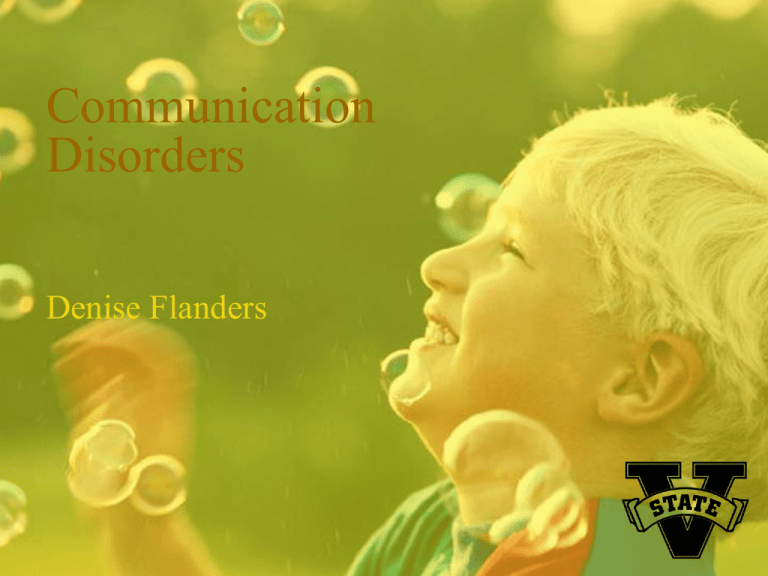
Communication Disorders Denise Flanders Overview • What is a communication disorder? • Difference between a speech impairment and a language impairment • Types of Speech Impairments • Causes • Prevalence • Identification and Assessment • References What is a Communication Disorder? • An impairment in the ability to receive, send, process, and comprehend concepts or verbal, nonverbal and graphic symbols systems Components of Communication Disorders Communication Disorders Speech Impairments Articulation disorders Fluency disorders Language Impairments Voice disorders Receptive Language disorder Expressive Language disorder Speech Impairments • What is a speech impairment? • Three types: – Articulation disorders – Fluency disorders – Voice disorders Language Impairments • What is a language impairment? • Two main types: – Receptive language disorder – Expressive language disorder Causes • Speech Impairments – – – – Cleft palate Speech muscles Teeth Traumatic brain injury • Language Disorders – Mental retardation – Hearing impairments – Environmental deprivation Prevalence of Communication Disorders • 2% of all school-aged children • More prevalent in males • 50% of children in special education Elementary School Children with Communication Disorders 58.2 60 47.5 50 38.4 40 30 20 10 3.4 0.6 1.7 0 Speech Sound Production Spoken Language Comprehension Voice Spoken Language Production Fluency Pragmatics Identification and Assessment • • • • Teacher observations Speech-Language Pathologist Physical exam and assessment Treatment References • Heward, W. (2003). Exceptional children: An introduction to special education (7th ed.). New Jersey: Johnston. • Kid Source Online. (2000, August). Info about speech & language disorders. Retrieved April 24, 2005, from http://www.kidsource.com/NICHCY/speech.ht ml • Owens, R. (2005). Language development: An introduction (6th ed.). New York: Dragin.



